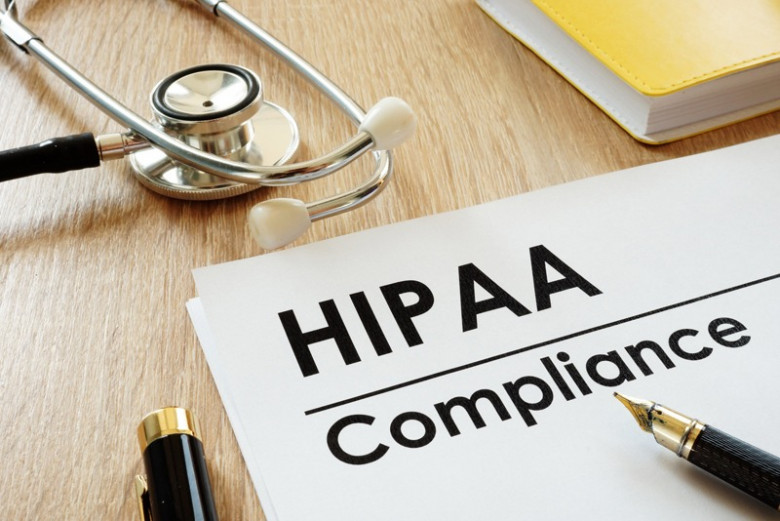views
HIPAA Compliance in Medical Record Review Services
In the legal sector, particularly for personal injury, medical malpractice, and insurance litigation, the correctness and reliability of health data play a significant role. So, medical record review for attorneys must be conducted maintaining the strictest privacy and security standards. Compliance with the Health Insurance Portability and Accountability Act (HIPAA), which governs how medical records are accessed, shared, and protected, is of prime importance in this regard.

What Is HIPAA, and How Is It Important in Legal Medical Record Review?
HIPAA (the Health Insurance Portability and Accountability Act of 1996) is a federal law designed to protect sensitive patient health information from being disclosed without the patient’s consent or knowledge. When it comes to medical record review for attorneys, this Act directly impacts how the medical documentation can be accessed, stored, and used.
Now let us consider how HIPAA compliance matters in the legal record review process:
- Legal Risk Relief: Non-compliance with HIPAA can lead to considerable fines, penalties, and case dismissals. Law firms and legal service providers must make sure that their handling of protected health information (PHI) is in accordance with HIPAA rules. This will help avoid risking the integrity of their case.
- Client Trust and Confidentiality: Sensitive medical information must remain confidential. Working with a HIPAA-compliant medical record analysis provider ensures you maintain ethical and professional standards, which strengthens the trust in your firm.
- Litigation Readiness: HIPAA-compliant service providers minimize the chance of opposing counsel challenging your evidence based on improper handling of medical records, a common strategy in insurance defense and medical malpractice litigation.
- Compliance across Jurisdictions: For law firms dealing with federal or multi-state cases, HIPAA provides a consistent national framework for handling sensitive health data, ensuring your practice is aligned across different courts.
HIPAA Compliance in Medical Record Review - Key Elements
When choosing a provider for medical chart review for lawyers, make sure they meet these HIPAA requirements:
1. Secure Data Storage and Transmission
The provider should use encrypted, access-controlled systems to store and transmit files. Whether you're emailing case files or uploading them to a portal, those communications must be protected end-to-end.
2. Access Control and Role-based Permissions
Only authorized personnel should access PHI. In HIPAA-compliant workflows, medical record analysts and legal teams operate within strict, permissioned environments.
3. Business Associate Agreements (BAAs)
Under HIPAA, a medical record review company is considered a Business Associate. This means they must sign a formal agreement with your law firm charting their compliance responsibilities.
4. Audit Trails and Documentation
To maintain accountability, HIPAA-compliant services log all access to medical records. These audit trails are essential, especially when records are being used in litigation support or insurance disputes.
5. Trained Personnel
HIPAA-compliant companies make sure their staff undergo regular training on handling PHI. This includes anyone involved in medical chronology preparation, summarizing complex charts, or providing expert medical opinions for attorneys.
How HIPAA Compliance Impacts Your Legal Case
Apart from legal obligation, HIPAA compliance can greatly affect your case outcomes.
- Stronger Evidentiary Support: When your medical records for legal cases are reviewed in a HIPAA-compliant environment, they’re handled with integrity and accuracy — making them more reliable in court. This process often includes well-organized medical timelines, summaries, and chronologies that support your legal arguments.
- Withstands Stringent Legal Review: HIPAA-compliant documentation can endure rigorous legal scrutiny during discovery and depositions. This is especially important in medical malpractice and personal injury cases.
- Streamlined Legal Workflows: Providers that follow HIPAA protocols typically offer well-structured systems for file exchange, access control, and status updates. This reduces administrative friction and increases your in-house team's productivity.
- Confidential Communication Channels: Your firm can safely collaborate with legal nurse consultants, expert medical reviewers, or litigation support teams without risking PHI exposure, thanks to secure platforms and encrypted communication methods.
- Reputation Management: Your reputation as a law firm that works only with HIPAA-compliant partners can reassure clients, courts, and opposing counsel that your practice is detail-oriented and ethically sound.
Data security and compliance are non-negotiable in the legal landscape. So, partnering with a HIPAA-compliant medical record review provider is essential. This helps safeguard sensitive health information, and reinforces the strength, credibility, and efficiency of your legal casework. From protecting client confidentiality to ensuring admissible and defensible medical evidence, HIPAA compliance is a vital consideration in any responsible legal practice.






















Comments
0 comment